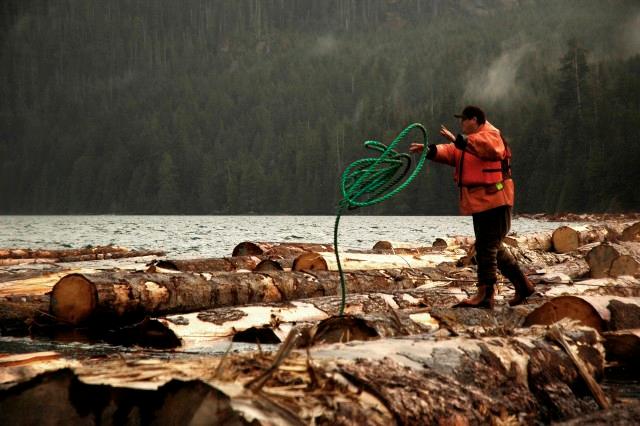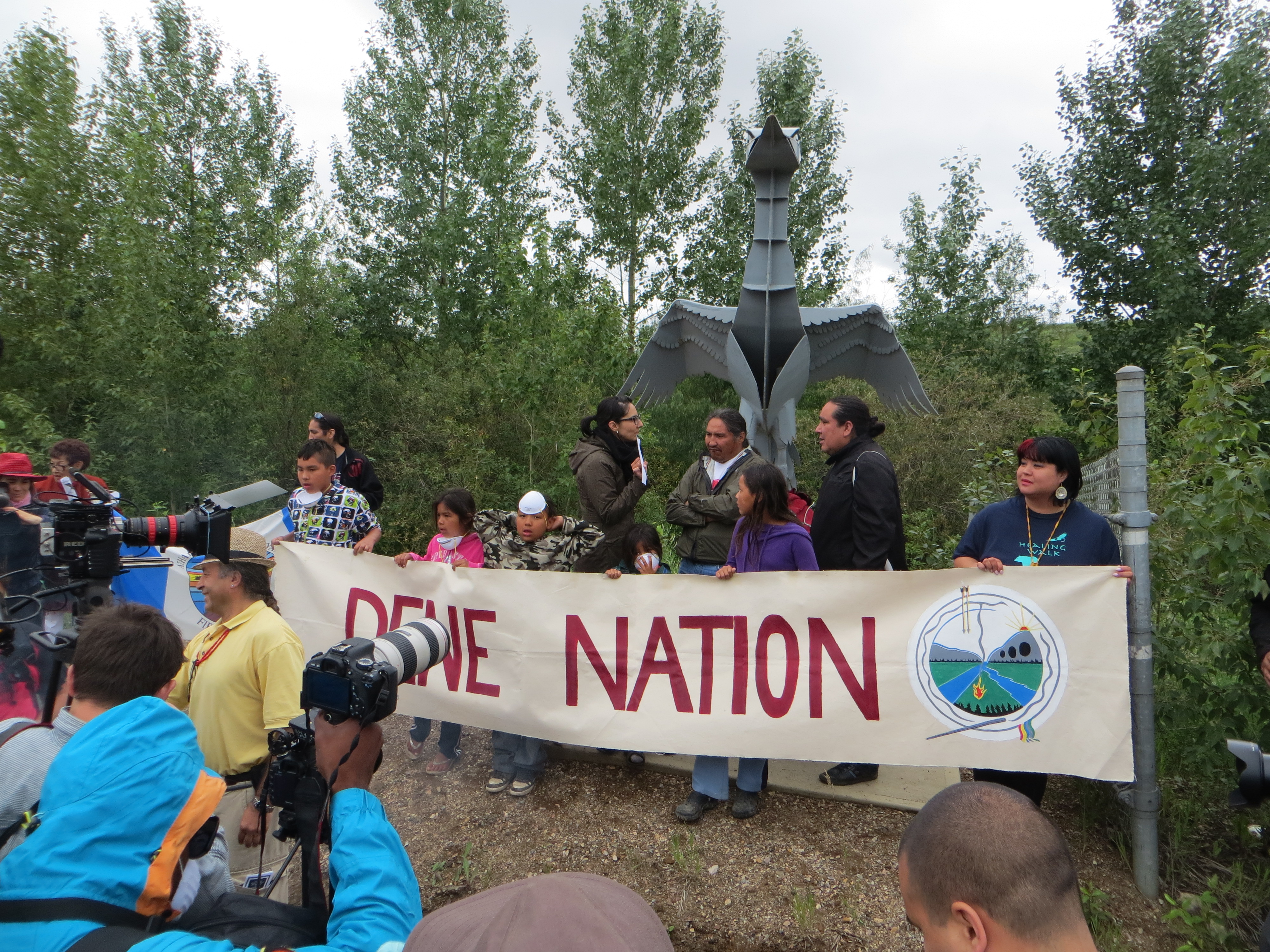Yellowknives Dene, or T'atsaot'ine, are a group of Athapaskan-speaking Dene associated with the region encompassed by the Coppermine and Yellowknife rivers, the northeast shore of Great Slave Lake, and northeast into the Barren Grounds. Yellowknives are one of the five main groups of the Akaitcho Dene First Nation of the Northwest Territories. In November 2024, the registered population of Yellowknives Dene First Nation was 1,719.

Contact History
From the first direct contact with European traders in the 17th century until their amalgamation with other Denesuline and Tlicho, every account has described Yellowknives Dene as similar to Denesuline in language and culture. Their distinctiveness and separate name is largely based on European perception. Early in the 17th century, traders were anxious to make contact with Indigenous peoples associated with copper. As such, early European traders named them “Copper Indians.” The name Yellowknives, and later the community of Yellowknife, is believed to be derived from the colour of the tools made from the copper metal found in the region. Samuel Hearne traveled inland to Yellowknife territory in 1770-72 and dispelled the idea of rich copper deposits.

Yellowknives Dene were the main providers and guides for the Franklin Expedition of 1819-22 (see also Sir John Franklin). Their leader at this time, Chief Akaitcho, acquired respect from the Europeans as a strong and competent leader. He was also the leader of the Yellowknives Dene during their war with the Tlicho. Chief Akaitcho acted as a peacemaker. In 1825, he negotiated a peace treaty with Tlicho Chief Edzo, ending the warfare between the two nations. Devastated by European diseases, the Yellowknives Dene soon thereafter ended their raids on Inuit groups, initiating a period of relatively peaceful relations between them and their neighbours.
In 1900, Emil Drygeese, the Chief from the Yellowknives Dene, was chosen to meet with the Treaty Commissioner and negotiate the Akaitcho's territory into treaty. The Yellowknives Dene were acknowledged as a distinct group, with an estimated population of 200, when they signed Treaty 8 at Fort Resolution along with other Indigenous peoples of the area ( see Treaties). Before this date, however, they began to merge with neighbouring Denesuline and Tlicho. By the 1960s, Tlicho and Denesuline were not aware of any group called Yellowknives. However, they could recount vivid stories about Akaitcho, whom they considered to be Denesuline.
In the early 1970s, the Government of Canada announced it planned to build a pipeline in Mackenzie River valley (see Mackenzie Valley Pipeline Proposal). The Dene believed this development violated their 1900 and 1921 treaties, which they understood to govern peace and friendship. However, the federal government interpreted the treaties as land surrender agreements. The court case, known as the Paulette Case, was the first major case heard in Canada where evidence was provided by Elders, in their own language, before a court. The testimony provided by Dene Elders who were present during the original treaty negotiations provided enough ambiguity regarding the interpretation of the treaties that the government was ordered to negotiate with Dene to clarify the land rights, resources and governance.
In the 1990s, comprehensive land claim negotiations failed. The Yellowknives Dene became part of the Akaitcho First Nations and began participating as part of the Northwest Territories Treaty 8 Tribal Corporation to negotiate the Akaitcho Land Claim Process. The federal and territorial governments began to negotiate with smaller individual nations, including the Akaitcho First Nations, to settle land claims. In 2006, the federal and NWT governments and the Yellowknives Dene First Nation (as part of the Akaitcho First Nations) signed an Interim Land Withdrawal Agreement that identified and protected areas while the negotiations for the Akaitcho Agreement continue.
Today, the two main Yellowknives Dene communities are Dettah and N'dilo located around the Great Slave Lake.

 Share on Facebook
Share on Facebook Share on X
Share on X Share by Email
Share by Email Share on Google Classroom
Share on Google Classroom


